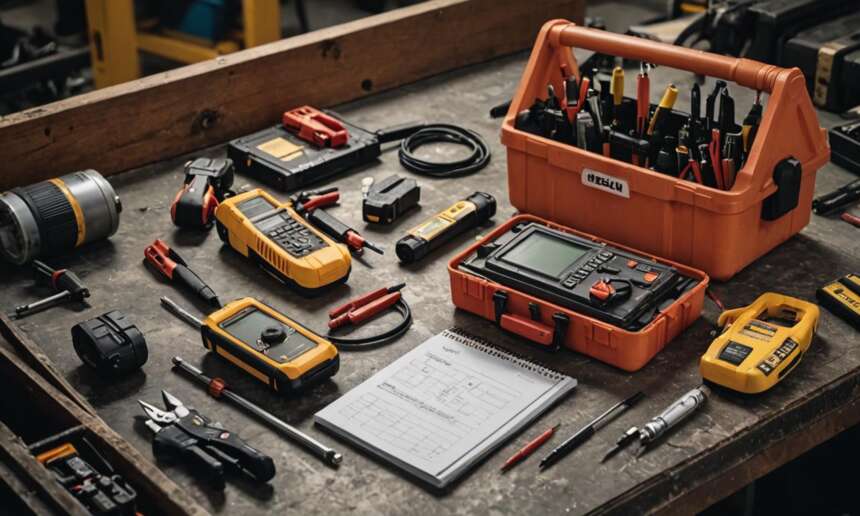As a maintenance engineer, we play a pivotal role in ensuring the smooth operation and functionality of various systems, equipment, and machinery within industrial, commercial, and residential settings. Our responsibilities encompass a wide array of tasks aimed at preventing breakdowns, reducing downtime, and optimizing efficiency.
The Core Responsibilities
Our primary duty revolves around conducting regular inspections, performing preventative maintenance, and troubleshooting issues that may arise in machinery and equipment. This proactive approach helps in identifying potential problems before they escalate into costly repairs or cause disruptions in operations.
Mechanical Expertise
One of our key strengths lies in our mechanical expertise. We possess in-depth knowledge of the inner workings of various mechanical systems, including HVAC (heating, ventilation, and air conditioning), plumbing, electrical systems, and industrial machinery. This expertise enables us to diagnose issues accurately and implement effective solutions.
Electrical Proficiency
In addition to mechanical knowledge, we are proficient in electrical systems. From understanding circuitry to troubleshooting electrical faults, we ensure that all electrical components operate safely and efficiently.
Preventative Maintenance
Preventative maintenance is a cornerstone of our work. By adhering to a scheduled maintenance program, we conduct routine inspections, lubrication, cleaning, and adjustments to prevent equipment failures and prolong the lifespan of machinery.
Equipment Calibration
We are responsible for calibrating equipment to ensure accuracy and precision in measurements. Whether it’s a pressure gauge, temperature sensor, or any other instrument, proper calibration is essential for reliable performance.
Emergency Repairs
In instances of equipment breakdowns or emergencies, we are on standby to swiftly address the issue and restore operations. Our ability to troubleshoot under pressure and implement quick solutions is crucial in minimizing downtime.
Continuous Improvement
As maintenance engineers, we are committed to continuous improvement. We stay updated on the latest advancements in technology and best practices in maintenance methodologies. This enables us to optimize processes, enhance efficiency, and reduce costs.
Documentation and Reporting
We maintain detailed records of maintenance activities, including inspections, repairs, and replacements. These records not only serve as a reference for future maintenance but also provide insights for decision-making and budget planning.
Training and Development
Furthermore, we engage in ongoing training and development to enhance our skills and stay abreast of industry trends. This commitment to professional growth ensures that we remain competent and capable of meeting the evolving demands of our role.
In essence, a maintenance engineer is a versatile professional with expertise in mechanical and electrical systems, dedicated to ensuring the reliability, safety, and efficiency of equipment and machinery. Through proactive maintenance, troubleshooting, and continuous improvement efforts, we contribute significantly to the seamless operation of various facilities and industries.
Frequently Asked Questions
- What qualifications are required to become a maintenance engineer?
- How does preventative maintenance differ from reactive maintenance?
- What are some common challenges faced by maintenance engineers?
- What role does technology play in modern maintenance engineering?
Technology Integration
With the advancement of technology, maintenance engineers are increasingly incorporating digital tools such as sensors, predictive analytics, and computerized maintenance management systems (CMMS) into their practices. These technologies help in monitoring equipment health in real-time, predicting potential failures, and optimizing maintenance schedules.
Environmental Sustainability
Another emerging aspect in maintenance engineering is the focus on environmental sustainability. Maintenance practices are being aligned with eco-friendly initiatives, such as energy-efficient equipment upgrades, waste reduction strategies, and adherence to green regulations.
| Qualification | Description |
|---|---|
| Degree in Engineering | A bachelor’s degree in mechanical, electrical, or related engineering fields is often required. |
| Technical Skills | Proficiency in troubleshooting, equipment maintenance, and knowledge of relevant regulations and standards. |
| Certifications | Obtaining certifications such as Certified Maintenance and Reliability Professional (CMRP) or Certified Maintenance Technician (CMT) can enhance job prospects. |
Globalization and Outsourcing
With the increasing globalization of industries, maintenance engineers may encounter challenges related to outsourcing of maintenance tasks to third-party service providers. This trend necessitates adaptability and the ability to collaborate with external partners while ensuring quality standards are met.
Safety Compliance
Maintaining compliance with safety regulations and standards is paramount for maintenance engineers. This includes ensuring proper training for personnel, conducting regular safety audits, and implementing safety protocols to prevent accidents and injuries.




